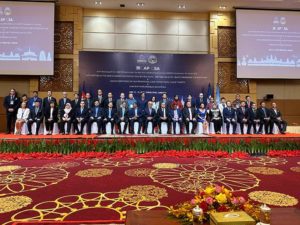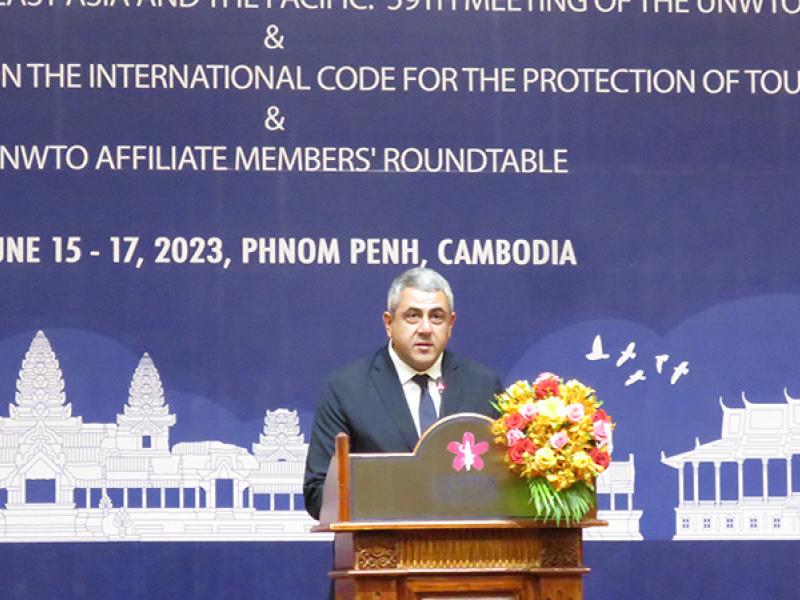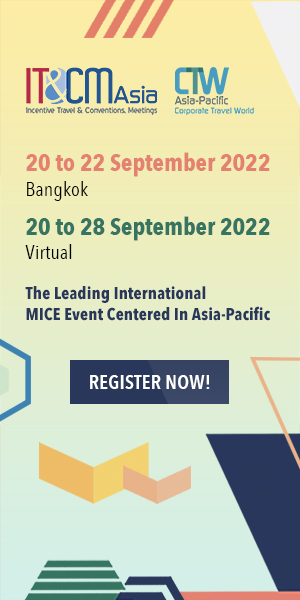 Cambodia, the Maldives, and Indonesia have joined forces supporting the International Code for the Protection of Tourists, marking a significant milestone in the global tourism industry. These nations have become the latest signatories to the United Nations World Tourism Organization’s (UNWTO) groundbreaking initiative. Additionally, Member States across Asia and the Pacific have united under the Phnom Penh Declaration, pledging to promote and implement the Code to safeguard tourists and instil confidence in travel.
Cambodia, the Maldives, and Indonesia have joined forces supporting the International Code for the Protection of Tourists, marking a significant milestone in the global tourism industry. These nations have become the latest signatories to the United Nations World Tourism Organization’s (UNWTO) groundbreaking initiative. Additionally, Member States across Asia and the Pacific have united under the Phnom Penh Declaration, pledging to promote and implement the Code to safeguard tourists and instil confidence in travel.
The International Code for the Protection of Tourists is a historic legal instrument aimed at establishing internationally recognized standards to ensure tourists’ safety on a global scale. Conceived by UNWTO in collaboration with over 100 countries, international organizations, tourism experts, and private sector stakeholders, the Code was officially adopted during the 24th UNWTO General Assembly in December 2021. It serves as a vital framework for governments to develop laws, regulations, and policies that protect tourists as consumers and provide clarity and assistance during emergencies.
The travel industry, having endured the profound crisis caused by the global pandemic, recognizes the paramount importance of restoring trust and ensuring the safety of tourists. The International Code is a pioneering solution to these pressing concerns, giving travellers the peace of mind they seek.
Many nations embrace this initiative, aligning national legislation with the Code’s principles. Cambodia, the Maldives, and Indonesia have joined the ranks of Ecuador, Costa Rica, Guatemala, Guinea-Bissau, Honduras, Moldova, Myanmar, Paraguay, Portugal, and Uruguay as national-level signatories. UNWTO Secretary-General Zurab Pololikashvili expressed his pride in the Code’s expansion, stating, “People want to feel safe and protected when they travel, and UNWTO has led the way in creating the first legal tool that will help restore trust in travel.”
To further emphasize the significance of this commitment, the 35th Joint Meeting of the Regional Commission for East Asia and the Pacific and the Commission for South Asia was held in Phnom Penh from June 15-17. This event provided a platform for regional tourism leaders to exchange insights, share best practices, and discuss the Code’s role in facilitating tourism recovery and building trust after the pandemic’s devastating impact.
Distinguished participants included the Deputy Prime Minister of Cambodia, Ministers of Tourism from Cambodia, Indonesia, Malaysia, the Maldives, and the Philippines, as well as Vice Ministers of Tourism from China and Iran. Uruguay, hailed as the “Champion of the Code,” brought its expertise in assisting tourists during emergency situations to the conference, enriching the discussions on international harmonization.
The conference shed light on how the Code addresses existing gaps in legal frameworks while emphasizing the importance of closer collaboration between the public and private sectors in assuming responsibility for assisting tourists and protecting consumer rights.
Before the conference, the Member States of the Asia and Pacific region ratified the “Phnom Penh Declaration on the International Code for the Protection of Tourists” in a resounding display of commitment. The Declaration, launched under Cambodia’s Ministry of Tourism auspices, solidifies the region’s dedication to enhancing cooperation and strengthening assistance to international tourists in emergencies. It also underscores the need for closer linkages between governments, tourism service providers, and other stakeholders to ensure comprehensive tourist protection.
The Phnom Penh Declaration aligns with Cambodia’s proven track record of assisting tourists during crises. In February 2020, the country successfully rescued over 1,000 passengers stranded at sea aboard the MS Westerdam cruise ship, exemplifying its dedication to the well-being of travellers.
As the Asia and Pacific region unites under the International Code for the Protection of Tourists, the global tourism industry takes a significant step forward in establishing a safer and more secure environment for travellers. With each new signatory, the Code’s influence expands, fostering a future where tourists can confidently explore the world.
For more information on the International Code for the Protection of Tourists, please visit the UNWTO website.
Written by: Anne Keam
















